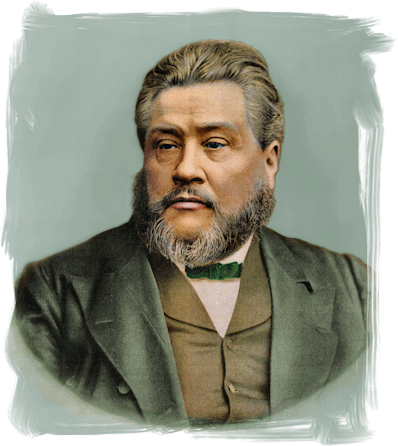[I'm very grateful for the use God has made of this post. Many pastors, leaders, and others have requested permission to print this and hand it out; and many sisters have said they were going to share it around. I hope it's put to use in youth groups. Originally posted in 2006, it always receives a mixture of gracious and bizarre responses. Let me add this one word to husbands: you too. "Smokin' hot" wife, right? Praise God. So remember what it was like to be single. You know how guys are. You used to be one! So you show some mercy to your brothers. Sensitize your wife about showing love for her brothers in this important way. Read this with her. Help her to dress helpfully and mercifully. And fathers? Duh. Doug Wilson waggles his eyebrows at you and, this time, so do I. So here it is once again, slightly edited as usual.]
Preface: "What are you? Nuts?!" Just thought I'd lead with the question you'll be wondering in a few minutes. I am about to stick my finger in the fan, about up to my elbow, and I know it. But I really think someone needs to say this — and why not me? I have less to lose than many who've thought the same thing, but daren't say it.

So here we go.
What will change, and what won't. Spring's sprung, and summer looms. Mercury rises, fashions change. But one thing that won't change, unless I'm happily mistaken: some good Christian sisters will not dress as
helpfully as they could.
I chose that word with care: "
helpfully." I am not talking about sin, shame, indecency, wantonness, or the like. Perhaps I could, with some justification. But that's for another time — and probably another writer. At this point, I just want to talk about being
helpful.
Sister, if there's one thing you and I can certainly agree on, it's this: I don't know what it's like to be a woman, and you don't know what it's like to be a man. We're both probably wrong where we're sure we're right, try as we might. So let me try to dart a telegram from my camp over to the distaff side.
"Sheol and Abaddon are never satisfied, and never satisfied are the eyes of man" (
Proverbs 27:20). Solomon doesn't use the Hebrew words that would indicate males exclusively, so this and
Ecclesiastes 1:8 may apply across the gender-board.
Libbie pointed out very ably that we men wrongly assume that we alone battle with temptations entering through the eye-gate.
 But.
But. But if men aren't alone in the battle, they may have a particular weakness for this aspect of it. Consider passionately-godly King David, whose psalms express aspirations after God beside which our own are pale, bloodless things. One day King David is in the wrong place, at the wrong time; sees a naked woman bathing next door, and
boom! — he's gone (2 Samuel 11). Family, kingdom, God — all forgotten, consumed in the flash-flame of a lust that was
only visual in its inception.
And what of that Israelite Philistine Samson and his own "eye trouble?" He sees a fetching young pagan, and bellows at his dad, "Get her for me, for she
looks good to me" (Judges 14:3 NAS). Where did Samson's passions take him? How did his course end?
Unless all the men I've known personally or at a distance are completely unrepresentative, it's a
lifelong struggle, a
lifelong weakness. As I recall from a Proverbs lecture on mp3, Bruce Waltke says that his dad, at around age 100, told him, "Bruce, I still have the same struggles I did when I was 50." It was sobering for Dr. Waltke to hear; sobering for any man! (In fact, put me down for "disheartening.")
Where am I going with this? Oh, don't try to look so innocent. You know
exactly where I'm going.
This is... church? So here comes this brother into the assembly of the saints, hoping for a rest from the battles of the week, a moment to regroup, sing, pray, get the Word, fellowship. He looks up to the choir, or to his left or his right — and in a tick of the clock, he's facing the same struggle he faced every time he turned on his TV, opened a magazine, or went down a city street. He's seeing things that make it far too easy for him
not to keep his mind focused where it needs to be focused.
And he's not in a nightclub, he's not at a singles' bar, he's not at the beach. He's in
church.
Now, some very direct disclaimers:
- Every man's sin is his own, and every man's struggle is his own (Proverbs 14:10).
- No one makes a man think or feel anything (Proverbs 4:23).
- It is each individual's responsibility to guard his own heart (Proverbs 4:23) and eyes (Job 31:1).
- Beauty is a wonderful gift of God (cf. Exodus 28:2; Song of Solomon 1:8, 15, etc.).
Having said all that: while it may be true that I'm the one holding the matches, you won't
help me if

you pile twigs all around my feet and douse them with lighter fluid. To be a little more specific: if you
know I've had trouble with drunkenness, you
won't wave a glass of wine in front of me tauntingly. If you
know I battle covetousness, you won't take me window-shopping in high-end stores I've no business frequenting.
That is, you won't do those things if you
love, if you
care for me at all.
So I put this question:
what are some sisters thinking, in how they dress?
"Attractive"? As the ladies pick clothes, they'll consider what's pretty, what's flattering, what's attractive. Who could blame them? But, "attractive" to whom? In what way? To what end? With what focus?
When I go fishing, I want my lure to
attract trout so they will
bite and
get hooked, and I can
kill them and
eat them.
A business wants to
attract buyers so they will
spend money and
acquire their product or service and make them
rich.
By that blouse, those pants, that skirt —
what are you trying to
attract? Attract
to what, so that they will
focus on what and
feel what, and
want to do what?
Consider the questions again. "Is it pretty?" Fine question, no evil in it. "Is it comfortable, is it complimentary, is it fun?" No problem. I'd just suggest you
add one more question:
"Is it helpful, or is it hurtful, to my brothers in Christ? Will this unintentionally contribute to their having a focus that is harmful to their holy walk?"
Now, lookie here:
In that day the Lord will take away the finery of the anklets, the headbands, and the crescents; the pendants, the bracelets, and  the scarves; the headdresses, the armlets, the sashes, the perfume boxes, and the amulets; the signet rings and nose rings; the festal robes, the mantles, the cloaks, and the handbags; the mirrors, the linen garments, the turbans, and the veils (Isaiah 3:18-23)
the scarves; the headdresses, the armlets, the sashes, the perfume boxes, and the amulets; the signet rings and nose rings; the festal robes, the mantles, the cloaks, and the handbags; the mirrors, the linen garments, the turbans, and the veils (Isaiah 3:18-23)
...likewise also that women should adorn themselves in respectable apparel, with modesty and self-control, not with braided hair and gold or pearls or costly attire, but with what is proper for women who profess godliness--with good works (1 Timothy 2:9-10)
Do not let your adorning be external--the braiding of hair, the wearing of gold, or the putting on of clothing-- but let your adorning be the hidden person of the heart with the imperishable beauty of a gentle and quiet spirit, which in God's sight is very precious (1 Peter 3:3-4)
What it isn't. Immediately we'll swing in, as we always do, and say, "Now, the writer's
not saying that women can't dress nicely, or wear jewelry, or blah blah blah." And we'll all disown our Fundie forebears who focused on nylons and lipstick, and came up with precise hemline measurements. We'll want to make sure that we're not advocating a new line of Bible Burqaware™ for evangelical women. All that will be true and valid enough.
 But... what is it?
But... what is it? But I'm concerned that, in our anxiety to be sure to prevent the
wrong interpretation, we effectively cut off
all interpretation. We have swung from
making the passages say
silly things, to
not letting them say
anything.
These passages have to mean something! They
must have
some application! What is it?
Surely the passages
warn against vanity, externality, sensuality; and
promote a
focus on a godly
character as true beauty. Who you are; not just what you look like. Remember: "As a ring of gold in a swine's snout, So is a beautiful woman who lacks discretion" (Proverbs 11:22 NAS).
Oh boy, I'm going to make it worse now. Deep breath before the plunge, and....
Say what? What are your clothes
saying about you, sister? What are they supposed to say to your brothers? "Hey, look at
this?" Well, they actually are trying to look at the
Lord; it's not good for them, not helpful for them, to be looking at
that. No, it's not your fault that they have a problem. We established that. And it's really great that God has made you beautiful. May your husband (present or future) celebrate your beauty.
But, please hear me: you can
help the brothers who
aren't your husband, or you can
not-help them. Which are you doing? If you're not married, and a man looks at you, is he thinking, "What a great
character"? Or are you giving him reason to think something else about you is "great"?
I know many of the responses. I've heard them. "You don't know what it's like to buy women's clothes, you ignorant man!" Mostly true. My first just-for-fun purchase of (what I thought was) a pretty blue dress for my dear wife was... well, it was appalling. What a good sport my wife was. I took it back to the store immediately, and made a much better choice.
"I caaaan't." But this: "I
can't find anything modest! It's
all too revealing! It's
impossible to get something

that looks nice, yet isn't too tight, or too short, or too-
something / not-
something-enough!"
Sorry, but
baloney.
I put
modest women's clothing Christian in Google, and
31,900,000 results come up. (Up from 63,500 in 2010.) Yes, some are funny and quaint at best. But are they
all Amishwear? "
Can't find?" Really?
More fundamentally: I do not accept that anyone
has to wear clothes that are too tight or too clingy or too sheer or too short — unless you are the largest and tallest woman living in the hottest part of the planet. Because I see larger, taller women than you walking around in hot weather, and they're all wearing clothes, every last one of them. They got those clothes somewhere, I reason. You could too.
"But — but they won't
look good on me! The shoulders will be wrong!"
Need-to-not-know. I'm not sure that's necessarily true, but let's accept it and pose a counter-question. You tell me. Which is worse: your shoulders hanging a half-inch too low? Or a blouse/skirt that simply (shifting into
turbo-delicate) provides need-to-know information to those with a need-to
-not-know?
I'm sure we all agree that there are clothes that show off what others have no
helpful business seeing. Here's what to show, in clothes-selection: show a Godward focus, discretion, a godly character.
And show
mercy.
Parting thought. Darlene Johnson pointed me to a
statement by Arthur Pink, which makes everything I've just said look awfully mild. But there's no denying that Pink has a point. I'll close with it:
Again, if lustful looking be so grievous a sin, then  those who dress and expose themselves with desires to be looked at and lusted after-as Jezebel, who painted her face, tired her head, and looked out of the window (2 Kings 9:30)-are not less, but even more guilty. In this matter it is only too often the case that men sin, but women tempt them so to do. How great, then, must be the guilt of the great majority of the modern misses who deliberately seek to arouse the sexual passions of our young men? And how much greater still is the guilt of most of their mothers for allowing them to become lascivious temptresses?
those who dress and expose themselves with desires to be looked at and lusted after-as Jezebel, who painted her face, tired her head, and looked out of the window (2 Kings 9:30)-are not less, but even more guilty. In this matter it is only too often the case that men sin, but women tempt them so to do. How great, then, must be the guilt of the great majority of the modern misses who deliberately seek to arouse the sexual passions of our young men? And how much greater still is the guilt of most of their mothers for allowing them to become lascivious temptresses?
Now, note, Pink and I speak to different audiences. I speak to those whom I charitably assume are
inadvertently dressing in an unhelpful manner. Pink speaks to those whose
intent is to allure. Between the two of us, I can pray we've provided food for thought, prayer, reconsideration, and needed
change.
One last thought: it is a mistake to think I exclusively have
church-attire in mind. That is lifted as a particularly egregious example of
what-are-you-
thinking? In what I say, I have in mind
any place where both sexes are present.












 you pile twigs all around my feet and douse them with lighter fluid. To be a little more specific: if you
you pile twigs all around my feet and douse them with lighter fluid. To be a little more specific: if you 




 hat text is often cited as if it were a mandate for the church to engage in political activism—lobbying, rallying voters, organizing protests, and harnessing the evangelical movement for political clout. I recently heard a well-known evangelical leader say, "We need to make our voices heard in the voting booth, or we're not being salt and light the way Jesus commanded."
hat text is often cited as if it were a mandate for the church to engage in political activism—lobbying, rallying voters, organizing protests, and harnessing the evangelical movement for political clout. I recently heard a well-known evangelical leader say, "We need to make our voices heard in the voting booth, or we're not being salt and light the way Jesus commanded."



 have found, in my own spiritual life, that the more rules I lay down for myself, the more sins I commit. The habit of regular morning and evening prayer is one which is indispensable to a believer's life, but the prescribing of the length of prayer, and the constrained remembrance of so many persons and subjects, may gender unto bondage, and strangle prayer rather than assist it.
have found, in my own spiritual life, that the more rules I lay down for myself, the more sins I commit. The habit of regular morning and evening prayer is one which is indispensable to a believer's life, but the prescribing of the length of prayer, and the constrained remembrance of so many persons and subjects, may gender unto bondage, and strangle prayer rather than assist it.

 eter wrote those words to Christians living in exile (1 Peter 1:1) and suffering under the cruelest kind of Satanically-inspired persecution (1 Peter 5:8-9). Their lives were constantly in danger because of their faith; most had already lost all their earthly posessions. Their suffering was multilayered and relentless.
eter wrote those words to Christians living in exile (1 Peter 1:1) and suffering under the cruelest kind of Satanically-inspired persecution (1 Peter 5:8-9). Their lives were constantly in danger because of their faith; most had already lost all their earthly posessions. Their suffering was multilayered and relentless.






 you pile twigs all around my feet and douse them with lighter fluid. To be a little more specific: if you
you pile twigs all around my feet and douse them with lighter fluid. To be a little more specific: if you 














